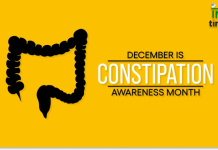
Global Handwashing Day, celebrated annually on October 15, serves as a crucial reminder of the importance of hand hygiene in preventing disease and promoting health. As we approach Global Handwashing Day 2024, the theme this year, “Time for Clean Hands,” emphasizes the urgency of integrating handwashing practices into our daily routines, especially in light of the ongoing challenges posed by global health crises. This article delves into the significance of Global Handwashing Day, its history, the current state of hand hygiene globally, and actionable steps individuals and communities can take to improve hygiene practices.
The Importance of Hand Hygiene
Hand hygiene is one of the most effective ways to prevent the spread of infectious diseases. According to the World Health Organization (WHO), proper handwashing can reduce the incidence of diarrhea by 30% and respiratory infections by up to 20%. The act of washing hands with soap and water removes dirt, bacteria, and viruses that can cause illness.
Key Facts About Hand Hygiene
- Disease Prevention: Regular handwashing can prevent various diseases, including COVID-19, flu, and other respiratory infections.
- Healthcare Settings: In hospitals, hand hygiene is critical in preventing healthcare-associated infections (HAIs), which can lead to increased morbidity and mortality.
- Educational Impact: Improved hand hygiene practices in schools can significantly reduce absenteeism due to illness, allowing children to focus on their education rather than recovery.
History of Global Handwashing Day
Global Handwashing Day was established in 2008 by the Global Public-Private Partnership for Handwashing, with the aim of fostering a global culture of handwashing with soap. The first official celebration took place on October 15, 2008. Since then, the day has become an important platform for raising awareness about the benefits of handwashing and advocating for improved hygiene practices worldwide.
Themes and Objectives
Each year, Global Handwashing Day focuses on specific themes that guide the messaging and initiatives for the day. The theme for 2024, “Time for Clean Hands,” underscores the urgency of adopting handwashing practices in daily life. The objectives for Global Handwashing Day 2024 include:
- Raising Awareness: Highlighting the importance of hand hygiene in disease prevention.
- Promoting Education: Encouraging educational institutions to incorporate handwashing education into their curriculums.
- Encouraging Policy Change: Urging governments and organizations to implement policies that support hand hygiene initiatives.
Current Global Handwashing Practices
Despite the well-documented benefits of handwashing, many people around the world still lack access to clean water and proper sanitation facilities. According to the WHO and UNICEF, 3 billion people do not have basic handwashing facilities at home, which has serious implications for public health, especially in low- and middle-income countries.
Challenges in Hand Hygiene
- Access to Water and Soap: In many regions, especially in rural areas, access to clean water and soap remains a significant barrier.
- Cultural Practices: In some cultures, handwashing is not prioritized or is viewed as unnecessary, which can hinder public health efforts.
- Education and Awareness: Lack of knowledge about the importance of hand hygiene contributes to low handwashing rates, particularly in vulnerable communities.
The Role of Schools and Education
Educational institutions play a pivotal role in promoting hand hygiene among children and young adults. By instilling good hygiene practices from an early age, schools can foster lifelong habits that contribute to better health outcomes.
Initiatives in Schools
- Handwashing Programs: Schools can implement structured handwashing programs that teach children the proper techniques and timing for effective handwashing.
- Interactive Learning: Engaging children through games, songs, and demonstrations can make learning about hand hygiene fun and memorable.
- Infrastructural Support: Providing adequate handwashing facilities in schools, including sinks, soap dispensers, and clean water, is essential for encouraging students to wash their hands regularly.
Community Engagement and Advocacy
Global Handwashing Day is not just a day for individual actions; it is also an opportunity for communities to come together and promote hygiene practices. Community engagement can take many forms, including awareness campaigns, workshops, and public demonstrations.
Effective Community Initiatives
- Awareness Campaigns: Local organizations can host events and workshops to educate community members about the importance of hand hygiene.
- Collaboration with Health Authorities: Partnering with health departments can help amplify messages about hand hygiene and its role in disease prevention.
- Involving Local Leaders: Engaging community leaders and influencers can enhance the reach and impact of hygiene campaigns.
The Role of Governments and Organizations
Governments and organizations play a crucial role in promoting hand hygiene on a larger scale. By implementing policies and programs that prioritize hand hygiene, they can significantly impact public health.
Policy Recommendations
- Investing in Water and Sanitation: Governments should prioritize investments in water and sanitation infrastructure, especially in underserved areas.
- Regulatory Frameworks: Establishing regulations that mandate handwashing facilities in public places, schools, and healthcare settings can promote hygiene practices.
- Public Health Campaigns: Governments can launch nationwide campaigns to raise awareness about the importance of handwashing and educate citizens on proper techniques.
The Role of Technology in Promoting Hand Hygiene
In today’s digital age, technology can play a significant role in promoting hand hygiene. Mobile applications, social media campaigns, and digital platforms can enhance awareness and education about handwashing.
Innovative Approaches
- Mobile Applications: Developing apps that provide reminders and information about hand hygiene can encourage individuals to maintain their handwashing practices.
- Social Media Campaigns: Utilizing social media platforms to share success stories, educational content, and challenges can engage a broader audience in the conversation around hand hygiene.
- Online Resources: Providing access to online resources and training materials can help organizations and individuals learn about best practices for hand hygiene.
India Time Lines
Conclusion
As we prepare for Global Handwashing Day 2024, it is essential to recognize the critical role hand hygiene plays in promoting health and preventing disease. “Time for Clean Hands” is not just a theme; it is a call to action for individuals, communities, governments, and organizations to prioritize handwashing practices. By working together, we can create a culture of cleanliness that benefits everyone, ensuring that hand hygiene becomes a fundamental part of our daily lives.
Call to Action
- Practice Hand Hygiene: Make handwashing a regular part of your daily routine, especially before meals and after using the restroom.
- Educate Others: Share information about the importance of hand hygiene with family, friends, and colleagues.
- Participate in Global Handwashing Day Activities: Engage in local events or online campaigns that promote hand hygiene and raise awareness.
- Advocate for Policy Changes: Encourage local authorities to prioritize investments in water and sanitation infrastructure, as well as hygiene education initiatives.



































